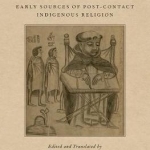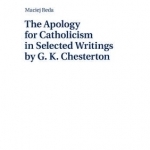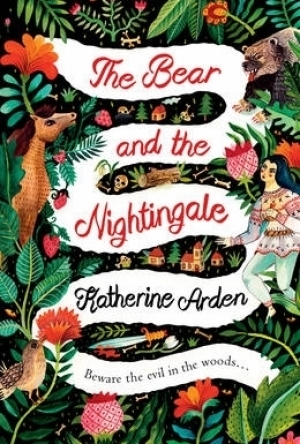
The Americas' First Theologies: Early Sources of Post-Contact Indigenous Religion
Robert M. Carmack, Sergio Romero and Frauke Sachse
Book
The Theologia Indorum by Dominican friar Domingo de Vico was the first Christian theology written in...
The Christian Tradition: A Historical and Theological Introduction
Book
Featuring an exceptionally lucid writing style and a holistic, integrated approach, The Christian...
ClareR (6067 KP) rated The Bear and the Nightingale in Books
Nov 15, 2017
A brilliant story!
I recommend this to people who like Medieval Literature that has heavy ties to Christianity and convoluted plots.
Cultural Encounters in India: The Local Co-Workers of Tranquebar Mission, 18th to 19th Centuries
Book
The book is an English translation of an award winning German book. The history of social and...

The Mission (1986)
Movie Watch
Jesuit priest Father Gabriel (Jeremy Irons) enters the Guarani lands in South America with the...

The Apology for Catholicism in Selected Writings by G. K. Chesterton
Book
This book focuses on G. K. Chesterton's apology for Catholicism in the context of his epoch. It...
Cody Cook (8 KP) rated The Satanic Bible in Books
Jun 29, 2018
LaVey does not view Satan as a person (nor does he view God that way), but as a representation of what man really is in his primal nature-- a violent and lustful nature which LaVey calls good, though he simultaneously argues that certain parts of it (that which would harm children or rape, for instance) are not good-- a dichotomy that he calls hypocritical in righthand path religions such as Christianity. Beyond this tension, he elsewhere seems to argue for moral relativism, creating a vicious circle of nonsense. Because good and evil are falsehoods and God and Satan are non-persons, the spells and rituals he creates are only symbols meant to harness our primal energies, sending them out to accomplish our goals (much like in the Hicks' Law of Attraction books or in The Secret).
A mix of equal parts tongue-in-cheek symbolism and outright charlatanism.
I suspect that this book's teachings would appeal primarily to two types of people: narcissists who want to seem edgy and angry people who have been harmed by institutional religion. In regard to the former, there are more thoughtful ways to be counter-cultural. In regard to the latter, an assessment of the intellectual weaknesses of this philosophy won't remove the hurt or pain they've been through, but hopefully an understanding that the kind of Christianity spoken of by LaVey is not genuine Christianity can remove some of the hatred they feel toward it due to the immoral actions performed by its claimed representatives.
Totally off-topic, but Lavey looks like a bald version of Evil Spock.
Apocalypse of the Alien God: Platonism and the Exile of Sethian Gnosticism
Book
In the second century, Platonist and Judeo-Christian thought were sufficiently friendly that a Greek...


